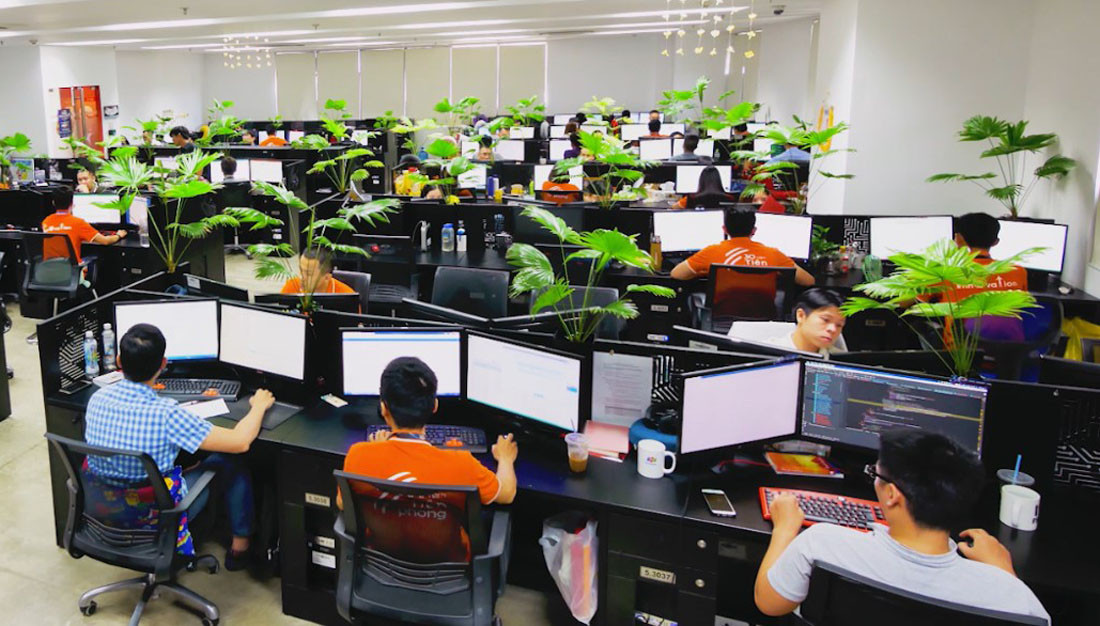
|
Getting your Trinity Audio player ready...
|
Vietnam is embarking on a new initiative to establish clusters of IT parks and software chains, aiming to foster a robust digital ecosystem and enhance global competitiveness within the production value chain.

Despite notable achievements in IT park development under the 2020 master plan, the Ministry of Information and Communications (MIC) highlights persistent challenges, including insufficient connectivity and collaboration among IT parks and industrial zones, particularly in larger cities where potential remains underutilised.
To address these shortcomings, the MIC emphasises the importance of prioritising capital investment to catalyse resource attraction and facilitate the realisation of key strategies for IT park development. The integration of this initiative into national ICT infrastructure development and regional socio-economic planning underscores its strategic significance.
Incorporating insights from the Institute of Information and Communications Strategy, the plan allocates space for concentrated ICT parks in six key economic zones. These parks are envisioned to serve as catalysts for technical infrastructure development, fostering a conducive business environment for technology firms and bolstering the digital technology industry.
Moreover, these hubs are expected to nurture innovation, facilitate startup activities, and serve as vital centres for human resource development in the digital domain. The comprehensive ICT infrastructure development plan encompasses five interlinked components, ensuring the seamless flow of physical, data, and knowledge networks while safeguarding national sovereignty through robust network information security measures.
Looking ahead, Vietnam aims to establish 12-14 IT parks and software park chains across the country by 2025, with projections to expand this figure to 16-20 by 2030. These parks will strategically position themselves near data centres within six economic zones, with plans to develop two or three concentrated IT parks in major cities like Hanoi, Da Nang, and Ho Chi Minh City by 2030.
Building on its digital transformation efforts, Vietnam’s Ministry of Information and Communications (MIC) sets ambitious targets for the semiconductor industry, projecting a valuation of US$20-30 billion by 2030. Despite this optimistic outlook, the semiconductor landscape currently reflects a gap between potential and reality, with only two local firms FPT and Viettel – venturing into the industry, despite over 50 eligible companies in the country.
While policymakers acknowledge Vietnam’s ample resources for semiconductor development, the nation’s semiconductor ecosystem still lacks essential manufacturing facilities, with only packaging and testing factories established by international giants. Addressing these challenges is crucial, especially concerning talent acquisition.
To secure a significant position in the semiconductor arena, Vietnam must address its shortage of skilled semiconductor integrated circuit (IC) engineers, aiming to reach a workforce of at least 50,000 by 2030, a tenfold increase from current levels.
Minister Nguyen Kim Son highlights universities’ crucial role in training semiconductor engineers, aiming to enrol 1,000 students in chip designing courses next year. Yet, Nguyen Thien Nghia of the MIC stresses the need for expedited engineer training to capitalise on semiconductor industry prospects.
Agreeing on the strategic significance of semiconductor chip development, the government has prioritised quality human resource strategies and tasked relevant ministries with crafting cohesive development policies. Since 2010, semiconductor chip products have been classified as national strategic items, yet substantial investments are still awaited.
The Ministry of Science and Technology (MoST) actively participates in semiconductor chip research, design, and manufacturing ventures, aligning with Vietnam’s broader digital transformation objectives.
As openGov Asia reported, Vietnam is embracing a digital revolution, highlighting collaborative efforts to drive the nation’s digital transformation. The nation’s digital technology industry aims to propel Vietnam towards high-income status by 2045 through technology mastery, innovation, and indigenous manufacturing capabilities.
In Vietnam, inclusiveness and collaboration emerge as linchpins for unlocking technology’s transformative potential, propelling economic growth where all sectors of society can participate and contribute to the nation’s growth.
















